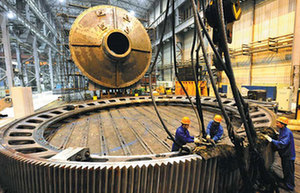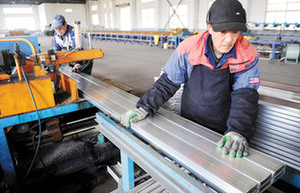But the official rise went against the depressing HSBC manufacturing PMI, which sampled small- and medium-sized enterprises.
The HSBC/Markit PMI, issued on Tuesday, dipped to an eight-month low of 48 in March, from a final reading of 48.5 in February.
It suggests that though overseas demand is stable, domestic demand is weakening, said HSBC's chief China economist Qu Hongbin.
"The difference between HSBC's and official PMI could be attributed to the fact that the HSBC PMI covers mainly small enterprises which suffered more in the current slowdown," Lu said.
One factor behind the recent slowdown is the government's anti-pollution campaign, which has shut down numerous small steel and cement mills, he said, adding that rising labor costs also squeezed many small businesses.
The HSBC PMI in March showed small and medium-sized enterprises are facing tough times and that uncertainties will confront the overall economy in the future, Liu said.
As some government officials' speeches have showed signals to boost economic growth, the worst time for the Chinese economy is over, Liu said.
Lu echoed the view and forecast the government will introduce fiscal measures to boost growth.
The government has set the country's growth target for 2014 unchanged at around 7.5 percent and the target for inflation at around 3.5 percent.
|
 |
 |
| Feb manufacturing PMI drops to 50.2 | HSBC China's manufacturing PMI at eight-month low |
We recommend
